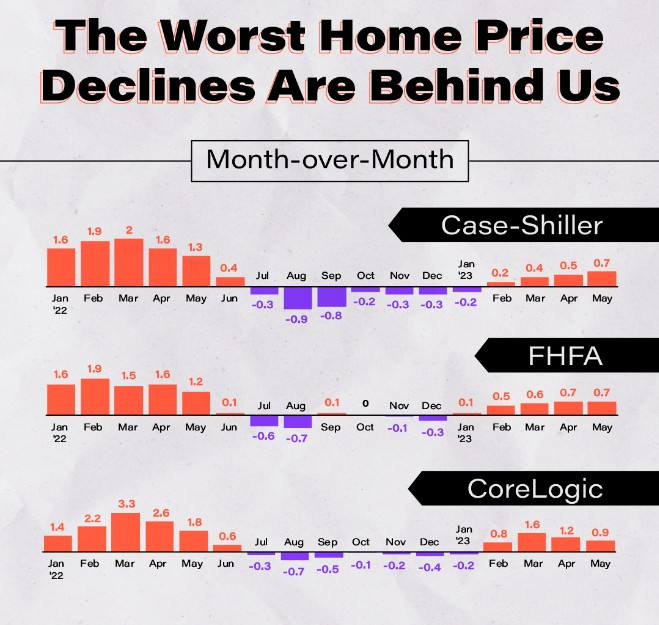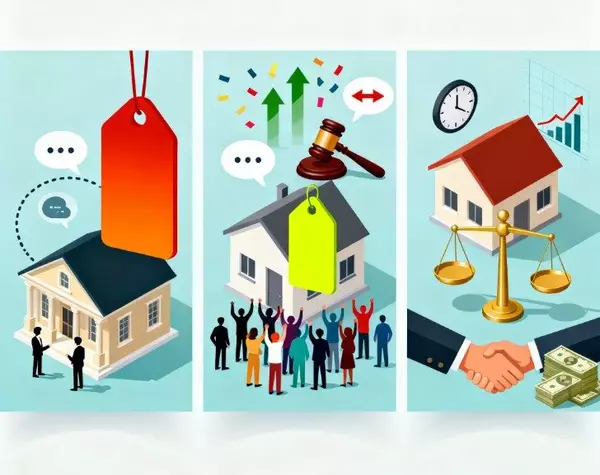Home Price Expectations Drive Decision to Sell and Buy

The housing market has been on a wild ride in recent years. After the COVID-19 pandemic caused a sharp decline in home sales in 2020, prices began to surge in 2021. This was due to a number of factors, including low interest rates, a pent-up demand for homes, and a limited supply of inventory.
As we enter 2023, consumer expectations of home prices are mixed. Some people believe that prices will continue to rise, while others believe that they will start to level off or even decline. This uncertainty is due to a number of factors, including the ongoing pandemic, the war in Ukraine, and rising interest rates.
A recent survey by the National Association of Realtors found that 40% of consumers believe that home prices will be higher in 2023 than they are today. However, 30% of consumers believe that prices will be lower, and 30% believe that they will stay the same.
The survey also found that consumers' expectations for home prices vary depending on their location. For example, 50% of consumers in the West believe that home prices will be higher in 2023, while only 30% of consumers in the Midwest believe the same.
Ultimately, the future of the housing market is uncertain. However, by understanding consumer expectations, people can make more informed decisions about whether to buy or sell a home in 2023.

Here are some additional factors that could affect consumer expectations of home prices in 2023:
- The pace of economic growth. If the economy continues to grow at a healthy pace, it could lead to an increase in demand for homes, which could push up prices.
- The direction of interest rates. If interest rates continue to rise, it could make it more expensive to buy a home, which could lead to a decline in demand and lower prices.
- The availability of inventory. If more homes come onto the market, it could help to meet demand and stabilize prices.
It is important to note that these are just a few of the factors that could affect consumer expectations of home prices in 2023. The actual outcome will depend on a number of factors, including the overall health of the economy and the decisions made by consumers and policymakers.
Given this, people do change their decision to buy or sell a home based on their belief that home prices will go up or down. There are a few reasons for this.
- Financial considerations. If someone believes that home prices are going to go up, they may be more likely to buy a home now, in order to lock in a lower price. On the other hand, if someone believes that home prices are going to go down, they may be more likely to sell their home now, in order to avoid losing money.
- Lifestyle considerations. If someone believes that home prices are going to go up, they may be more likely to buy a larger or more expensive home, in order to get a better return on their investment. On the other hand, if someone believes that home prices are going to go down, they may be more likely to sell their home and downsize, in order to reduce their housing costs.
- Emotional considerations. Some people may feel a sense of urgency to buy or sell a home if they believe that home prices are going to go up or down. This is because they may be afraid of missing out on a good deal or losing money.
It is important to note that it is impossible to predict the future of the housing market with certainty. However, by understanding the factors that can affect home prices, people can make more informed decisions about whether to buy or sell a home.
Here are some of the factors that can affect home prices:
- Economic conditions. The overall health of the economy can have a significant impact on home prices. For example, if the economy is strong, people are more likely to have jobs and be able to afford to buy homes. This can lead to an increase in demand for homes, which can push up prices.
- Interest rates. The interest rate on a mortgage is one of the biggest factors that determines the monthly cost of owning a home. When interest rates are low, more people can afford to buy homes, which can lead to an increase in demand and higher prices.
- Supply and demand. The supply and demand for homes is another important factor that can affect prices. If there are more homes for sale than there are buyers, prices will tend to go down. On the other hand, if there are more buyers than homes for sale, prices will tend to go up.
Ultimately, the decision of whether to buy or sell a home is a personal one. However, by understanding the factors that can affect home prices, people can make more informed decisions about when to make a move.
Categories
Recent Posts










GET MORE INFORMATION

